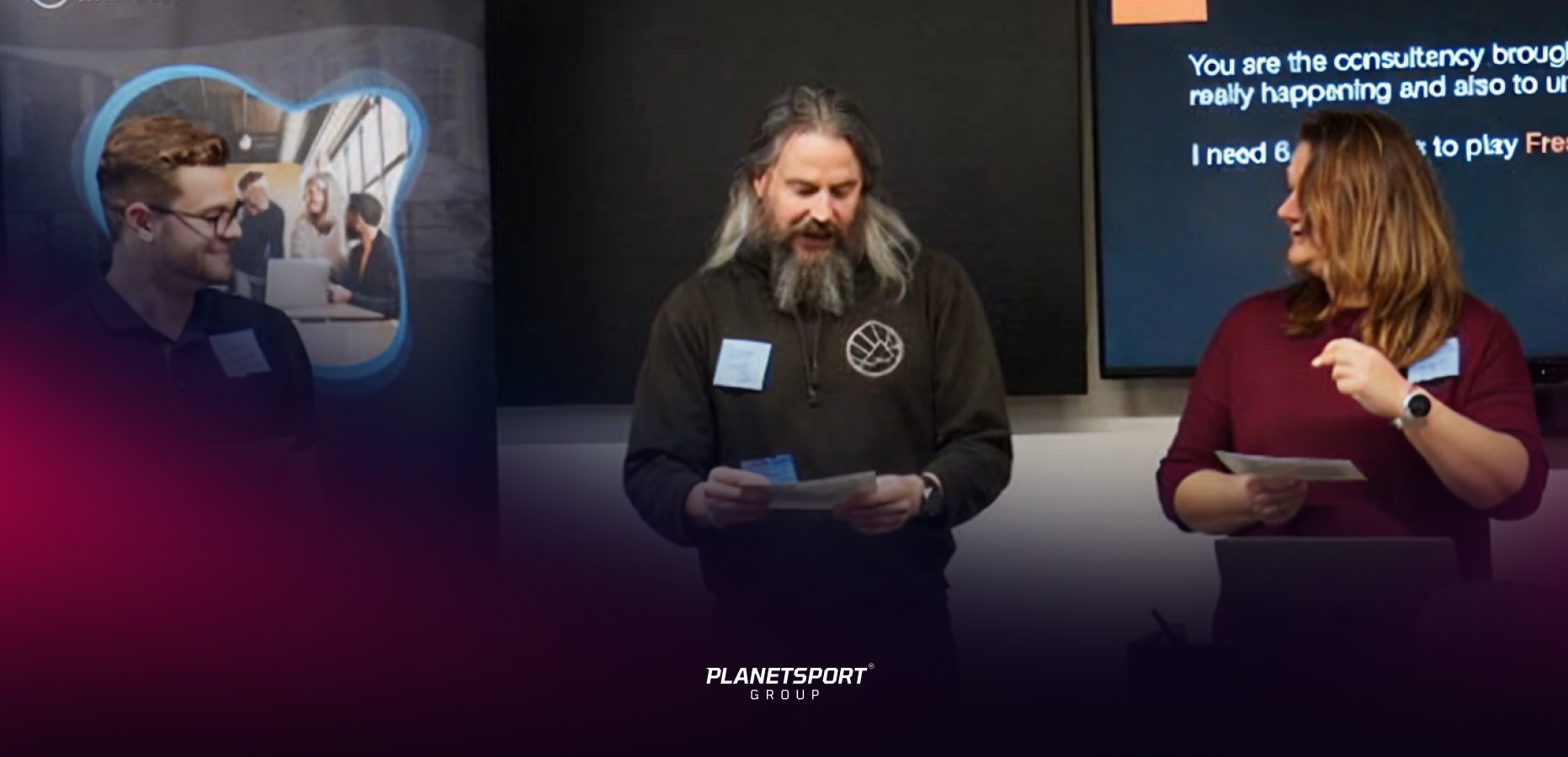What tech leaders can learn from agile, gen z, and the climate crisis

Our Chief Technology Officer Tim Lewis has spent 25 years building and scaling tech in fast-moving environments like DAZN and Stats Perform. His team builds digital products that engage over 25 million sports fans a month.
Tim frequents many industry events and recently had the pleasure of panelling for the Powering the Future podcast. Here's what he learnt.
In the past month, I’ve had the privilege of listening, learning, and contributing across three very different but unexpectedly connected events.
First, I attended Agile Yorkshire’s April meetup in Leeds, where we unpacked the modern chaos of agile workflows and how to fix them.
Then I joined a leadership roundtable with Exalto Consulting to dig into the challenge of managing multi-generational teams.
Finally, I spoke on the Powering the Future podcast; the episode was aptly titled 'Tech's Carbon Dilemma', and we dived into, you guessed it, tech’s growing carbon footprint.
Three different topics and formats, but all surrounding the same question: how do we lead better in tech today?

1) Your sprint’s not broken, but your meetings might be
At Agile Yorkshire, two things stood out: we’re still obsessed with meetings, and no one really likes them.
Steve Martin, with 13 years of experience as an agile coach, trainer, and mentor, introduced the concept of Obeya. A single visual workspace and central source of truth where teams can track progress, blockers, and goals without falling into the status meeting trap.
It’s simple but effective. Instead of pulling everyone into endless updates, you create visibility upfront. It’s a move we’ve started experimenting with ourselves at Planet Sport, and it leads to sharper focus and less noise.
Amardeep Sirha, Head of Data and Co-Founder at Amarti, reminded us that project managers still matter even in agile working setups, but they're not there to endlessly assign tasks but to unblock things when teams get stuck. That distinction changes everything.
The overall goal isn’t fewer meetings; it’s fewer pointless ones. So if you'd like to give it a go, start with one wall (physical or digital) which will act as a central source of truth, and see what happens to your team's productivity!
2) Gen Z, X or millennial, we all bring value, and good leaders bridge gaps
The Exalto Consulting roundtable opened up a conversation I don’t think we have often enough in tech: how do you lead a team that spans three generations?
I’m Gen X. Most of the room was too. But what really struck me was how much we can gain if we lean into, not away from, generational friction.
Reverse mentoring, where younger colleagues share insights with older ones, is a powerful (and humbling) tool. It’s helped me better understand what Gen Z values: flexibility, purpose, and real-time feedback. And no, they don’t want to hear how much harder we had it “back in our day”, and nor should they.
Mixed-age teams are more innovative if we build trust across the divides. That takes vulnerability, listening, and, most of all, it takes changes in assumptions about what leadership looks like.
3) Your tech stack might be smart, but is it sustainable?
The “Powering the Future” podcast tackled tech’s carbon impact. AI models are power-hungry, cloud usage is rising and few teams are measuring their emissions, let alone reducing them.
The good news is measurement tools do exist, and if we can track engagement or latency, we can track our carbon footprint too. Industries like logistics and manufacturing are ahead of us on this, so we’ve got some catching up to do.
As the topic of tech sustainability is becoming consistently more prevalent, the direction is clear: smart tech cannot come at the cost of our planet.
The takeaways
The shared theme through all of this? Intentional leadership. Whether it’s how you run meetings, manage people, or build systems, the answer isn’t just better technology but better choices.
If we want to keep up with change and have the opportunity to actually lead it, we need to look beyond the tools and into how we appear as leaders: knowledge-hungry, flexible, honest, and ready to evolve with the times.
